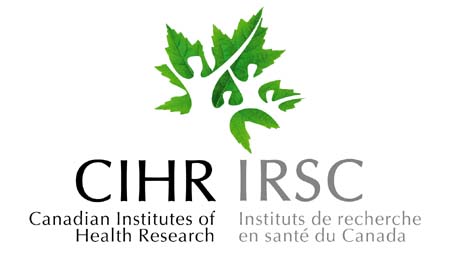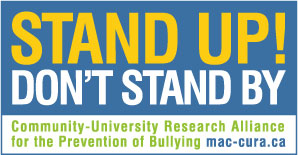Welcome to Mac-CURA.ca
Toward a Bullying-Free CommunityA sad reality facing too many Canadian students, is the repeated humiliation and oppression they endure at the hand of their schoolmates. Although peer abuse represents a longstanding problem in schools, only recently has there been an acknowledgement that such exposure is harmful. Indeed, in the past few years, there has been a surge of research and media reports demonstrating that children who are bullied by their peers suffer from a host of psychological and social problems.
|
|
A successful anti-bullying program requires the support and commitment of the school staff and the larger community. In the community of Hamilton, Ontario, there is certainly a growing recognition that bullying is not just a school problem; it is a community problem. Accordingly, it is best dealt with using a community-based effort that enlists the aid of all citizens. There is tremendous commitment between our community partners and university researchers to work together to tackle this problem through an equal partnership with research, education and training, and knowledge transfer and synthesis being central to a long-term goal of sustained bullying reduction. With the help of the CURA the primary efforts of the research team and the community collaborators are being directed toward:
|
|
Supported by:


![]()


